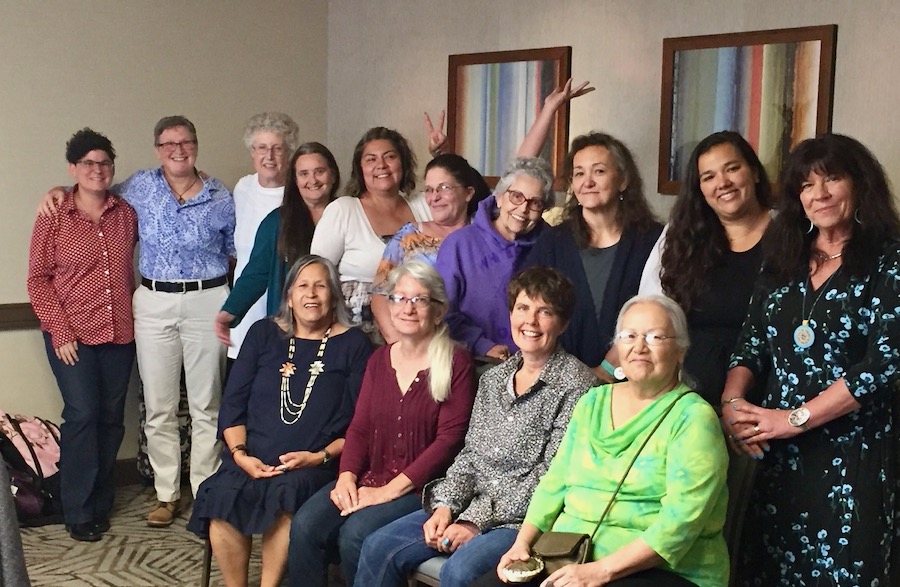
The National Workgroup on Safe Housing for American Indian and Alaska Native Survivors of Gender-Based Violence meets in Phoenix for the first time in June of 2019. / Photo courtesy of NIWRC.
About the National Workgroup on Safe Housing for American Indian and Alaska Native Survivors of Gender-Based Violence
Workgroup Aspirations
Originally, the National Workgroup on Safe Housing for American Indian and Alaska Native (AI/AN) Survivors of Gender-Based Violence was brought together by the National Indigenous Women’s Resource Center, the Alaska Native Women’s Resource Center, and the National Resource Center on Domestic Violence starting in January of 2019. The goal of this workgroup began as a way to bring together experts from Indigenous communities who work in the fields of domestic violence, housing instability, and homelessness to develop policy and create concrete recommendations for technical assistance, resources, and other supports for the sole purpose of increasing the availability of safe, affordable, accessible and sustainable housing for Indigenous survivors of gender-based violence.
At the core of the workgroup are essential questions about how we can be good relatives to one another, to our non-human kinship, and to the Land. If housing stability is going to be fully realized, we have to ask and answer important questions about what it means to have a duty to one another, about what it means to do good work and to be good relatives. If we start from the framework that we all deserve safety, that we all deserve a place to belong, and that we all deserve community, our vision of safe housing for all our relatives might one day be realized. If we can believe that housing and shelter are basic human rights, just as they are basic human needs, we can start to see the outlines of what it is that we have to change about our existing framework and about how we have set about doing this work in the past.
The intention of this workgroup remains the same: to continue to bring together advocates from diverse fields, backgrounds, regions, and experiences to expand upon our thinking about what responsive training and technical assistance could look like at the intersection of housing instability and gender-based violence in Indigenous communities. Over the arch of the workgroup, it has been invaluable to bring domestic violence advocates and housing advocates who both singularly focus their work on assisting Indigenous peoples together to learn from one another in a space that is open, honest, and educational. In this way, the workgroup will continue to help the STTARS Indigenous Safe Housing Center to achieve a part of its mission statement: to build upon each other’s gifts in order to create safe housing for all our relatives.
National Workgroup on Safe Housing for American Indian and Alaska Native Survivors of Gender-Based Violence
-
Brenda Hill, National Indigenous Women’s Resource Center
-
Brittany Eltringham, National Resource Center on Domestic Violence
-
Caroline LaPorte, National Indigenous Women’s Resource Center
-
Christine Stark, Independent Consultant
-
Diana Devine Yazzie, Native American Connections
-
Donna Fairbanks, National Native Housing Training Consultant
-
Eileen Hudon, Ogitchidakwe Council
-
Gwendolyn Packard, National Indigenous Women’s Resource Center
-
Holly Henning, Ain Dah Young
-
Heidi Notario, National Resource Center on Domestic Violence
-
Liana Sanchez, Avanyu, LLC
-
Linda Retka, National American Indian Housing Council
-
Tami Jerue, Alaska Native Women’s Resource Center
-
Sheila Lamb, Life House
-
Tatewin Means, Thunder Valley Community Development Corporation





